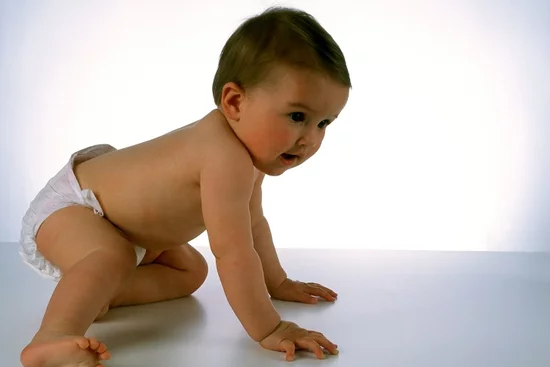The adorable baby may be cooing and babbling one minute, eating mashed peas, kicking their tiny feet, and depending entirely on parents the next. Individuals suddenly find themselves dealing with a toddler who is walking, talking, opinionated, independent, ahem. What happened just now?
The baby grew up in the blink of an eye. One will need to step up the game to satisfy the child’s evolving requirements because they are in a completely new stage of life. However, precisely when does a baby become a toddler?
Necessary Indices Showing Baby Is Developing:
Their first birthday has passed:
Children between the ages of one and three are referred to as toddlers, according to the Centers for Disease Control (CDC) Trusted Source. Some people believe that once their kid turns one, they are automatically advanced to toddler-hood.
They are moving:
When the baby literally leaps off the sofa, down the stairs, across the playground, or out of ones arms to explore the world on their own two feet, that is one of the biggest signs that they have transitioned into toddler-hood. Additionally, toddlers will engage in more difficult gross motor activities.
Individuals frequently hear babies say “no.”:
“No” is the preferred word for children during this developmental stage, and they will never grow tired of saying it directly to the face. Everything is perfectly normal; when children become aware of their own preferences, they discover that sometimes saying “no” results in their getting more of what they want and less of what they don’t.
They’re making hand motions:
Think of gestures like pointing, clapping, and waving as ways for someone to communicate with others. The toddler is learning that even if they point at something, they can still convey their message. They may not be able to express they want the yellow truck on the top shelf just yet.
They don’t want any assistance:
The word “independent” has already been used a few times, and for good reason—there isn’t a better word to convey how desperately toddlers want to distinguish themselves from their parents and establish their place in the family. Don’t take it personally; it’s a crucial developmental step for children to learn how to care for themselves.

They are becoming pals:
Toddlers still mostly engage in parallel play, but when they begin to show preferences for particular classmates and their social abilities begin to blossom, parents may start receiving more requests for play-dates. The child might address specific youngsters by name.
They’re getting more rest:
Most children no longer require a bottle or nighttime breastfeeding by the time they are 12 months old. Therefore, it’s possible that they only sleep for one delightfully lengthy block of time each night. Toddlers also require one or two naps per day; the American Academy of Pediatrics recommends that their total daily sleep time be between 11 and 14 hours.
They are artistic:
An active imagination is among the coolest things that emerges in the toddler years. The young child may begin:
- telling people nonsense tales.
- drawing vibrant images.
- the dancers are honing their moves.
- playing a theatrical game with several imaginary situations.
FAQs
How old must a child be to be considered a toddler?
Children are referred described as “toddlers” once they turn 12 months old.
How long does a child go through this stage?
Toddler-hood is a stage that occurs between the ages of one and three. It fosters both mental and physical development.
What distinguishes a toddler from a young child?
The phrases “baby,” “walker,” “toddler,” and “small kid” typically refer to toddlers between the sizes of 0 and 13 whereas “big kid” and “youth” typically refer to children between the sizes of 1 and 7.
Which age is the most crucial for a child’s development?
According to current brain studies, a child’s formative years range from birth to age three.
Can a child recognize pregnancy?
There is no proof in science that young children can sense other unborn children.
